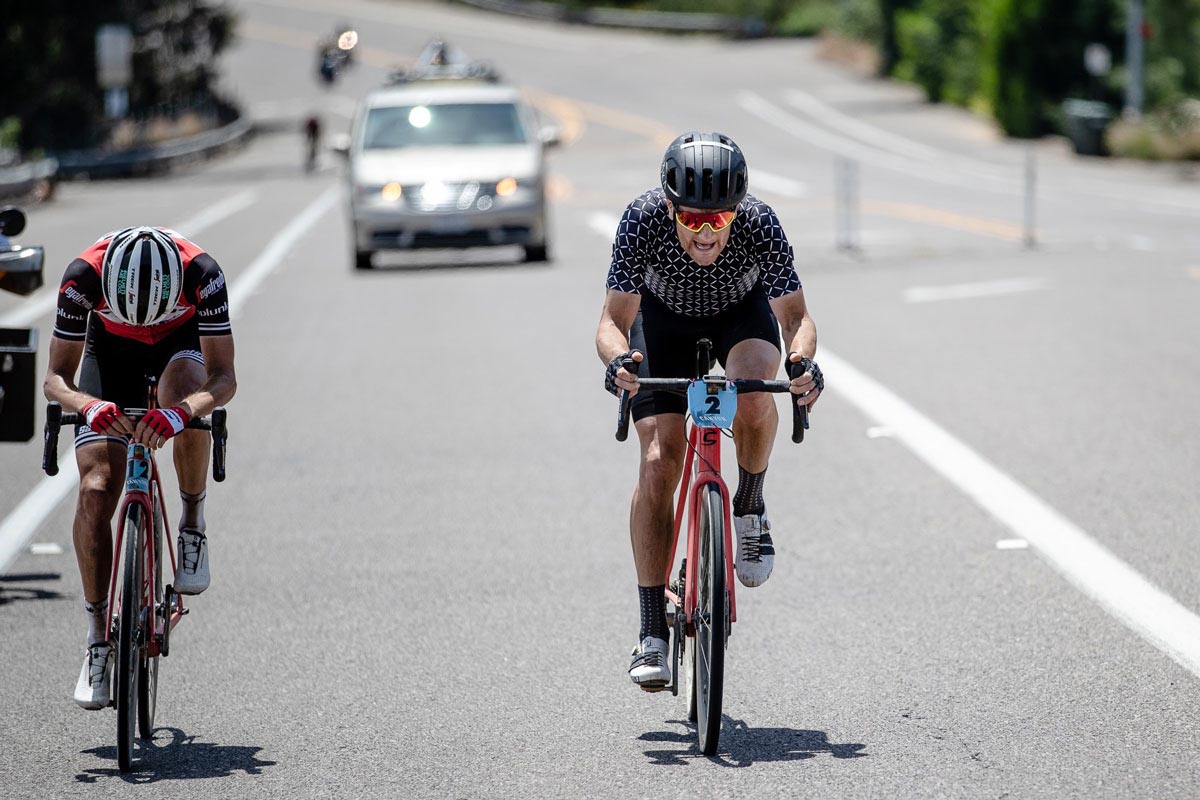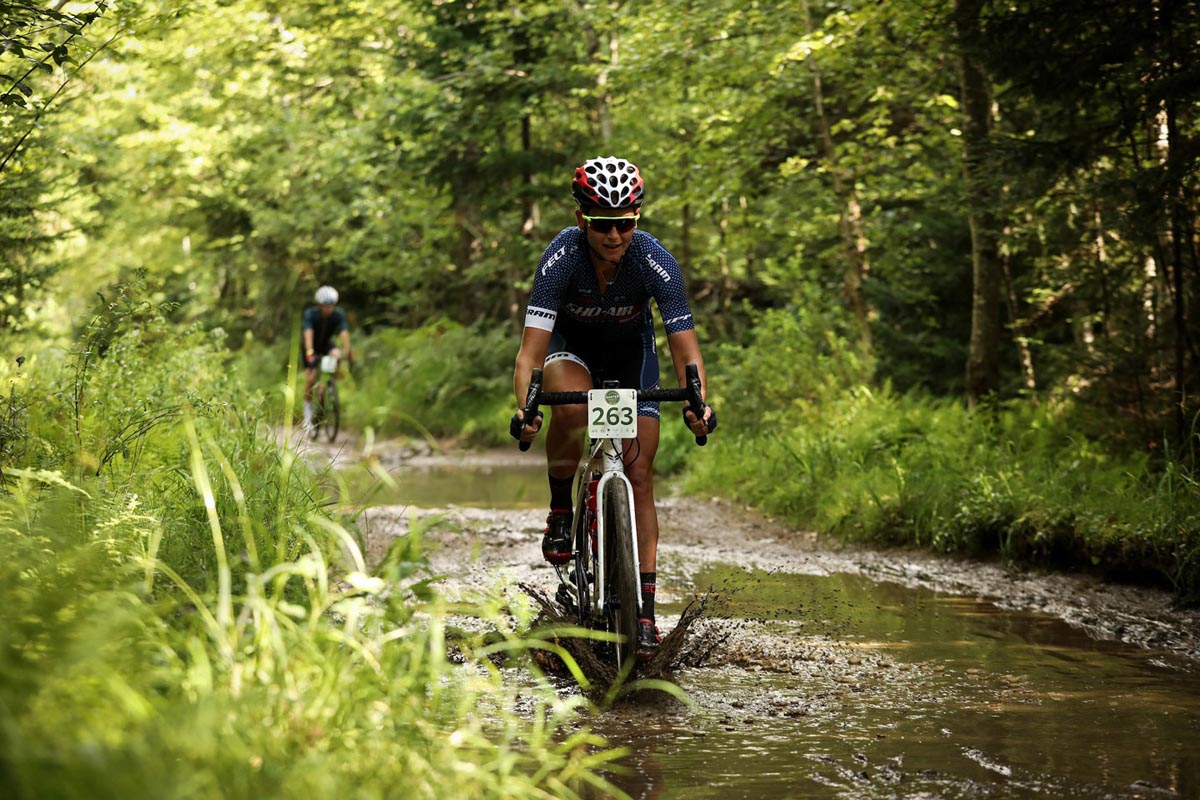By Ted King: The King of Gravel
If you’re a baseball player, you play the game with a pitching mound, home plate, three bases, and a handful of players on the field. A tennis court has a net in the middle of a couple rectangles and a hockey game consists of two goals on a sheet of ice. These venues can be as formal as a 100,000 person, $1 billion stadium or they can be as rinky-dink as a couple of cones and lines dug in the dirt. However, the general format of every sport is formalized with a setting and established rules known the world round.
Gravel cycling, however, operates with a different paradigm. Every course is different, every venue is unique, and every event has a different set of rules. The growth of gravel is booming in the United States as it comes to life throughout the rest of the world. The varied terrain throughout the globe means that no two courses are the same. Every event promoter has a slightly – or enormously – different set of rules dictated by the parcours on which the event will unfold. Examples help illustrate this point.

Ted racing Dirty Kanza 2019
Dirty Kanza is the granddaddy of gravel and has been an evolution in its own right. Thirty four people toed the line in year one setting off towards the horizon for a 200 mile mass start adventure. Fast forward to the present, nearly 3,400 people do roughly the same, now tackling 25, 50, 100, 200, or the brute DKXL with its 350 miles. A race that long in the heat of the Kansas summer is one of attrition so tactics are less part of the game as is staying within one’s limits and being supremely aware of calories and hydration. The success of DK put the dusty town of Emporia, Kansas on the map and added enormous vibrancy to their previously struggling economy.
Next, look at something like the booming first year event SBTGRVL. Taking place in the already hip mountain town of Steamboat, Colorado, more than 1,600 riders came from around the world for this inaugural event. Also offering a variety of distances, tactics become more part the strategy over the course of the day, as 140 miles is manageable for many with the right training and not entirely one of attrition. Wrestling with altitude, the dynamic of both punchy and lengthy climbs, and because the course is not terribly technical, having race savvy pays off here. Minus the altitude, I would put the Epic 150 in Missouri in the same category.

SBT GRVL 2019
On the other end of the tactics spectrum is something like Belgian Waffle Ride. With its lengthy stretches of pavement mixed with some chunky, sharp gravel, a smattering of climbs, and especially taking place in road race heavy southern California, undoubtedly BWR is one of strategy. Team dynamics are at play as is reading a race, using your matches sparingly but knowing when to light them off.

The final paved rollers of the Belgium Waffle Ride in California
Next take something like the event my wife Laura and I started, Rooted Vermont. Right down to our event mascot, we emphasize mullet protocol, where there’s “business up front” for a portion of riders who want to duke it out, but the “party in the back” is where it’s at! Stopping at the feedzones for UnTapped treats or grilled Twinkies, a rest stop that slices through a friend’s yard, Rooted is a summer party before, during, and after the event. With two distances, it’s approachable for all cyclists and the happy vibe makes it a terrific target for first timers or hard chargers.

Rooted Vermont 2019
From the Flint Hills of Kansas, the rolling mountains of Steamboat, the urban and rural shake-and-bake of San Diego County, to the lush craggy mountains of Vermont, the above events all employ remarkably different terrain. They all have a distinct start and finish line and the fastest time takes the W.
Grinduro stands out as an event with its own set of rules that have been well received by the gravel community. Rather than simply one start and finish line, there are four distinct, very different segments where times are tabulated to generate a cumulative time. The rest of the day is spent soft pedaling, shooting the breeze, or stopping to cool off in a stream or take in a meal with a view. This gravel-enduro style event has popped up in a variety of iterations throughout the country at other gravel events.
A related interjection here: at Rooted we celebrate the spirit of gravel by offering a mullet protocol podium to go along with the fastest times. Riders can text in their vote for riders who go out of their way to be helpful, kind, honest, or help lead a wayward group back on track. This illustrates a variety of ways modern gravel operates with a new set of rules as the mullet podium ensues amid the post race party.

The 2019 Mullet Protocol Podium at Rooted Vermont
Stage racing is nothing new to traditional cycling, but with Rebecca’s Private Idaho or the mighty Ride Divide, riders are now competing over multiple days.
Another consideration is that gravel doesn’t need to be race whatsoever. The UV Epics or the Vermont Forest Fondo are about the coming together of riders and friends, maybe finding a secretly stashed cooler on course, and riding for the sake of exploration. The Gravel Growler or shredXvermont are micro events that bring the best parts of gravel – friends riding together over a variety of terrain – in an entirely non competitive manner.

A variety of terrain is one of the signature elements of any gravel race.
I often compare gravel to craft beers. Even five years ago, it could be argued that with so many breweries popping up, microbreweries, nanobreweries, even folks brewing in their basement, that we had reached peak saturation of the craft beer market. But, successful breweries making delicious beverages of all types continue to pop up all the time. A similar case could be made about the state of gravel. We have our classics and we have gravel events fighting for calendar space among other gravel events; this is it, it could be argued, this is peak gravel.
I, however, believe that this is just the beginning. The entire sport of cycling and especially this nascent world of gravel is fluid. Take the Sugarcane 200, a brand new race bringing gravel to Floridian cycling just outside of the Everglades. An area that one might not expect to find gravel, but there’s plenty to be found. So what we see today is not what we’ll see in gravel in five, ten, or twenty five years, but gravel is here to stay. Therefore the best advice I can give is to simply take it all in, be part of it, celebrate it, and embrace the gravel spirit.

TED KING
Welcome to Ted’s Talk! This is a five-part series spearheaded by the King of Gravel, Ted King, as he goes deep on all aspects of gravel cycling. After a ten-year career in the World Tour ranks of professional road racing, Ted thought he was hanging up his wheels and setting off towards the horizon of retirement in 2015. But his fondness for the sport of cycling was too strong and it’s like he never left! Ted is a brand ambassador, gravel cyclist, racer, advocate, and consultant on all things two-wheels.
Get social with Ted @iamtedking
or head over to his website
